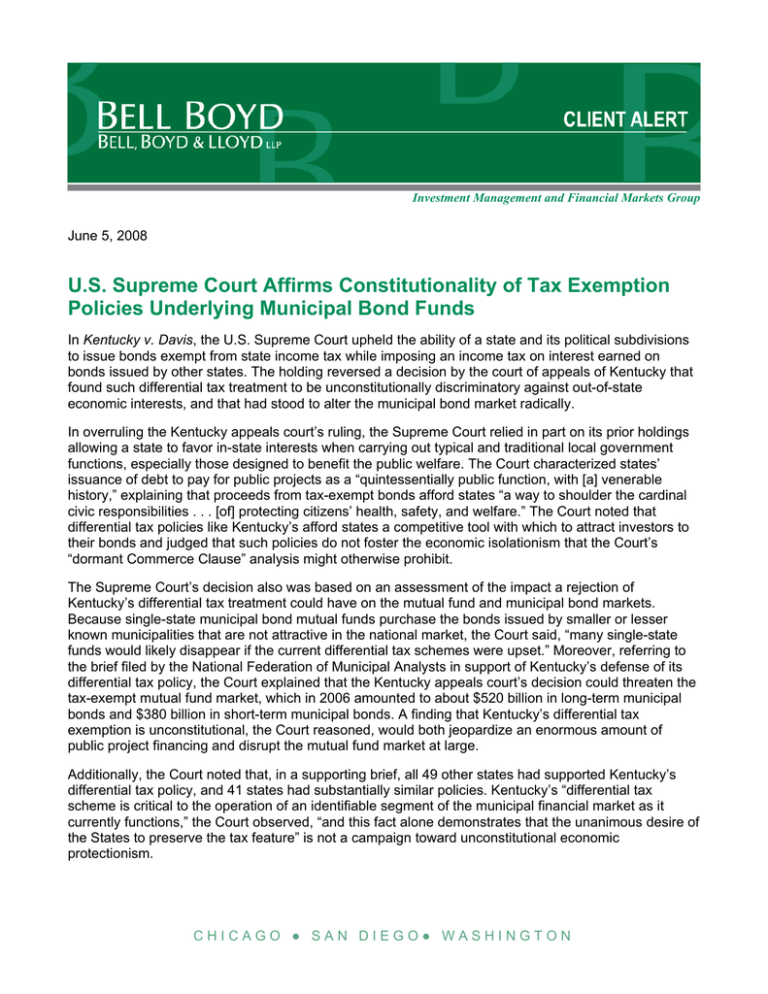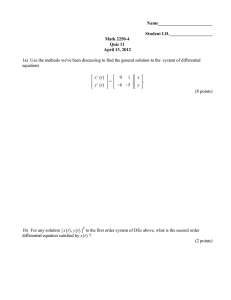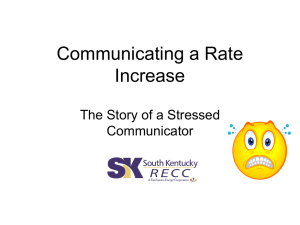
Investment Management and Financial Markets Group
June 5, 2008
U.S. Supreme Court Affirms Constitutionality of Tax Exemption
Policies Underlying Municipal Bond Funds
In Kentucky v. Davis, the U.S. Supreme Court upheld the ability of a state and its political subdivisions
to issue bonds exempt from state income tax while imposing an income tax on interest earned on
bonds issued by other states. The holding reversed a decision by the court of appeals of Kentucky that
found such differential tax treatment to be unconstitutionally discriminatory against out-of-state
economic interests, and that had stood to alter the municipal bond market radically.
In overruling the Kentucky appeals court’s ruling, the Supreme Court relied in part on its prior holdings
allowing a state to favor in-state interests when carrying out typical and traditional local government
functions, especially those designed to benefit the public welfare. The Court characterized states’
issuance of debt to pay for public projects as a “quintessentially public function, with [a] venerable
history,” explaining that proceeds from tax-exempt bonds afford states “a way to shoulder the cardinal
civic responsibilities . . . [of] protecting citizens’ health, safety, and welfare.” The Court noted that
differential tax policies like Kentucky’s afford states a competitive tool with which to attract investors to
their bonds and judged that such policies do not foster the economic isolationism that the Court’s
“dormant Commerce Clause” analysis might otherwise prohibit.
The Supreme Court’s decision also was based on an assessment of the impact a rejection of
Kentucky’s differential tax treatment could have on the mutual fund and municipal bond markets.
Because single-state municipal bond mutual funds purchase the bonds issued by smaller or lesser
known municipalities that are not attractive in the national market, the Court said, “many single-state
funds would likely disappear if the current differential tax schemes were upset.” Moreover, referring to
the brief filed by the National Federation of Municipal Analysts in support of Kentucky’s defense of its
differential tax policy, the Court explained that the Kentucky appeals court’s decision could threaten the
tax-exempt mutual fund market, which in 2006 amounted to about $520 billion in long-term municipal
bonds and $380 billion in short-term municipal bonds. A finding that Kentucky’s differential tax
exemption is unconstitutional, the Court reasoned, would both jeopardize an enormous amount of
public project financing and disrupt the mutual fund market at large.
Additionally, the Court noted that, in a supporting brief, all 49 other states had supported Kentucky’s
differential tax policy, and 41 states had substantially similar policies. Kentucky’s “differential tax
scheme is critical to the operation of an identifiable segment of the municipal financial market as it
currently functions,” the Court observed, “and this fact alone demonstrates that the unanimous desire of
the States to preserve the tax feature” is not a campaign toward unconstitutional economic
protectionism.
CHICAGO ● SAN DIEGO● WASHINGTON
The Court declined to address the constitutionality of Kentucky’s differential tax policy for income on
certain private-activity bonds because the argument had not been sufficiently developed in the courts
below.
For further information, please contact Cameron Avery 312-807-4302, Kevin Bettsteller 312-807-4442,
Paul Dykstra 312-781-6029, David Glatz 312-807-4295, Alan Goldberg 312-807-4227, Elizabeth Hudson 312-807-4376,
Anna Paglia 312-781-7163, Andrew Pfau 312-807-4386, Paulita Pike 312-781-6027, Eric Purple 202-955-7081,
Bruce Rosenblum 202-955-7087, Donald Weiss 312-807-4303, Gwendolyn Williamson 202-955-7059, or
Stacy Winick 202-955-7040 of Bell, Boyd & Lloyd’s Investment Management and Financial Markets Group or visit our
Web site at www.bellboyd.com.
This publication has been prepared by the Investment Management and Financial Markets Group of Bell, Boyd & Lloyd LLP
for clients and friends of the firm and is for information only. It is not a substitute for legal advice or individual analysis of a
particular legal matter. Readers should not act without seeking professional legal counsel. Transmission and receipt of this
publication does not create an attorney-client relationship.
© 2008 Bell, Boyd & Lloyd LLP All Rights Reserved
www.bellboyd.com
70 West Madison Street
Chicago, Illinois 60602
t. 312-372-1121
f. 312-827-8000
3580 Carmel Mountain Road
San Diego, California 92130
t. 858-509-7400
f. 858-509-7466
1615 L Street, N.W.
Washington, DC 20036
t. 202-466-6300
f. 202-463-0678




